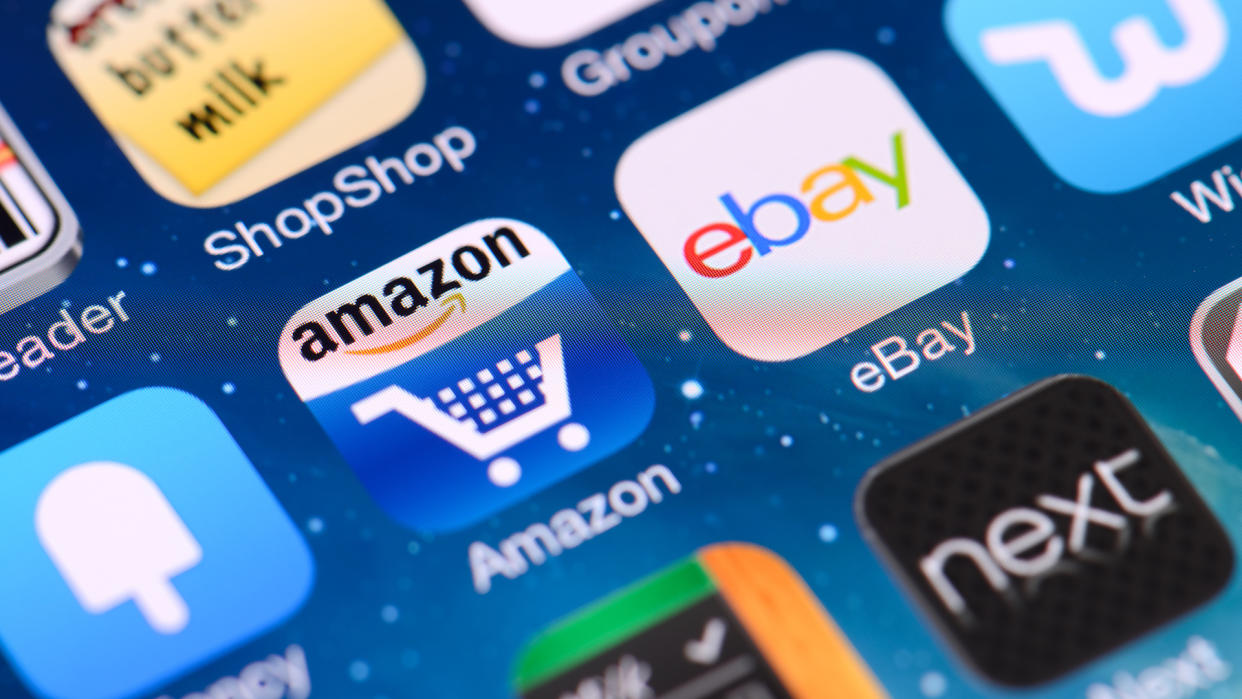6 Tips To Cut Back on Your Online Spending This Year

Spending money online was easy enough before the pandemic. Since the spread of COVID-19, online retailers have been more than happy to oblige our demands for safety plus convenience. Clicking to buy is now easier than ever — to the tune of a 37% increase in online spending in the third quarter of 2020, compared to the same period in 2019, according to the U.S. Department of Commerce.
For consumers trying to reduce online spending in 2021, there are powerful forces working against us. It’s not just the shopping apps and marketing emails that we pseudo-voluntarily opted into — well-targeted ads, enticements of discounts and clever upsells are everywhere we look, from our social media feeds to our smart TVs.
Save More: Shopping Mistakes You’re Making and How To Stop
“It’s so easy to lose track of what you’re spending online,” said Trina Patel, a financial advice manager at Albert, a mobile banking and financial advice app. “People look at their top spending categories and they’re surprised at the end of the month how much those little purchases add up.”
With some prescriptive actions, though, combined with keeping a focus on an overall budget plan, it’s possible to free yourself from the web of worldwide spending. Read on for Patel’s expert tips.
Last updated: Jan. 15, 2021

1. Unsubscribe From Retail Marketing Emails
When we make purchases online, we often get automatically opted in to marketing emails, Patel said. “It’s easy to be tempted by those emails when we see something is 50% off,” she said. Make sure the opt-in box, which is often checked by default, is unchecked before submitting an order. Take a few minutes to go through your email inbox and unsubscribe from those you’re already getting.
Find Out: 15 Times You Should Splurge, Settle or Skip When Shopping

2. Delete Your Shopping Apps
Shopping apps offer a number of incentives, such as one-time discount offers, added features and an overall better user experience. During the pandemic, some, like Target, have been savvy in offering free curbside pickup only when ordering via the app. In exchange, you’re giving them a valuable piece of dedicated real estate on your device’s home screen where you can easily take refuge in a quick moment of retail therapy. Kick them all off your devices to reduce the temptation, Patel said. “Out of sight, out of mind.”
Don’t Do It: 11 Things You Should Never Buy New

3. Block Retail Sites From Your Web Browser
Patel advises looking at your online spending to assess which stores are those where you spend the most. Then go into your browser settings and create or add them to your list of blocked websites. “It’s easy to just go browse stuff when you’re taking a quick break from work,” she said. “It reduces the temptation if it’s not going to be easy to access.”
Avoid: 50 Purchases Buyers Almost Always Regret

4. Remove Saved Credit Card Information
When making a purchase, retailers often suggest that you save your credit card information in their system to save time and avoid having to enter it again the next time you buy. Patel suggests going into your account settings for such websites and clear out your saved payment information – especially those with high potential for an impulse buy. “Having to go to your wallet and enter your credit card gives you more time on an impulse buy to ask yourself if you really need it,” she said.
To add another layer of accountability, make yourself wait a full day before making the purchase, especially for larger ticket items. That will give you adequate time to determine not only whether you need it, but to check your bank account and budget to make sure it falls within your spending goals.
Cut Costs: 35 Useless Expenses You Need To Slash From Your Budget Now

5. Get a Buddy
Having an accountability buddy, Patel said, can really help provide a level of support when you’re being sucked into temptation. It could be a friend you can call on the phone, perhaps one who’s on a similar mission. Or it could be a spouse or partner in your house with whom you share financial goals.
“It’s someone you can text and say, ‘Hey, I really want to buy these shoes. Should I do it?’” Patel said. “You can help curb each other’s spending, and it’s nice to do it together.”
Helpful: How I’m Sticking to a Budget and Spending Less During COVID-19

6. Keep an Eye on 'Essentials'
The pandemic has greatly accelerated the trend toward shopping for essentials such as groceries and takeout meals online. With that has come an even broader net of goods we casually add to our online carts. Meanwhile, grocery stores and delivery services are becoming more adept at getting you to spend more money on extra stuff you don’t need.
Patel’s advice is to treat an online grocery order as any budget shopper would when physically going to the grocery store: Make a list. Search for those items specifically rather than scrolling. Start with an idea of how much you want to spend and stick to that. And finally, she said, “even online, don’t shop for groceries when you’re super hungry.”
More From GOBankingRates
36 Ways To Save For Your Emergency Fund and Any Unexpected Situations
25 Tips and Tricks for Buying a Car Online During the Pandemic
This article originally appeared on GOBankingRates.com: 6 Tips To Cut Back on Your Online Spending This Year
